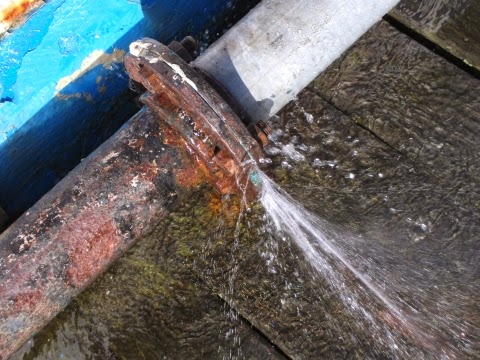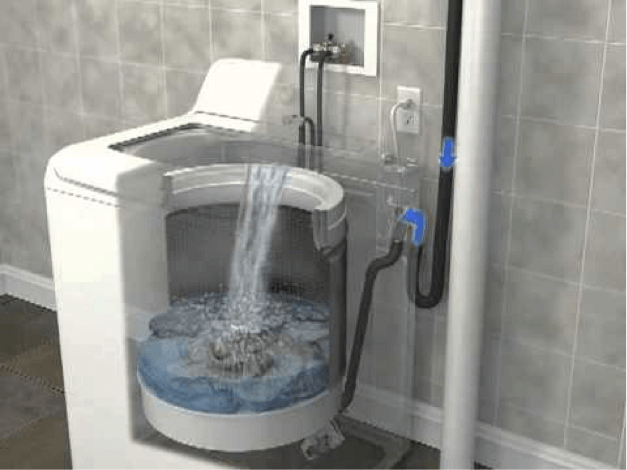The Complete Guide to Septic System Maintenance: Everything You Need to Know
The Complete Guide to Septic System Maintenance: Everything You Need to Know
Blog Article
Have you been interested in guidance concerning The Do’s And Don’ts After Water Damage?

What should you do if a water pipeline ruptureds in your residence? The longer you wait, the much more severe the damages that can occur to your property. For these factors, you need to discover how to act in the occasion of a burst water pipeline.
Turn off the Main Waterline Shutoff
The first thing to do? Close the shut-off shutoff. Look for the regional shut-off valve to switch off the water in one specific location only. If you do not understand where the local shut-off valve is, go for the major water line valve and also turn it off. This action will certainly remove the water quickly in your whole house. Usually, the major shutoff is found outside the residence next to the water meter. If it's not there, you can additionally find it in two locations: in the cellar at eye level or the 1st flooring on the ground. Generally, building contractors put the shut-off valve generally ground degree restroom or best beside it.
Call Water Damages Remediation Pros for Aid
After shutting the water resource, call the professionals for assistance. Due to the fact that the pipelines needed to be repaired and also there is a need to deal with the various other problems to your home, this scenario is not something you can do some DIY. If you can not cope, look for help from a respectable firm offering 24/7 emergency services. With their professional aid, you can protect against much larger water damage including deformed walls, loosened floor tiles, or damaged structures. Do not take this trouble gently and seek expert support for your full satisfaction and a reliable option.
File the Damage For Insurance coverage
While you're waiting on the pros to show up, obtain some paperwork of the damages brought on by the wayward pipeline. Take photos as well as videos of whatever. Do close-up shots of the damaged belongings and spots. Your documentation will function as evidence for your property owner's insurance. Keeping aggressive with this scenario assists you to sue for protection, which will even more support you and also your household to return on your feet.
Recover Things That Can Be Saved
Analyze the harmed products and take out the most important ones from the pile when you're done taking images. Dry them off in a dry/warm area far from the damaged location and also attempt to protect them as much as you can. Drag as much dampness as you can to the material so it can begin to dry.
Begin the Drying Process
The good news is, the water from your waterlines is already tidy so you don't have to stress about drain water. The flowing water might have disturbed the dust and also debris in your carpetings and floorboards. Blot out as much water as you can from the surface areas with old towels.
Experts are the only individuals qualified to evaluate properly and also fix the burs pipes as well as succeeding damages. They usually give silent red flags like gurgling paint, water discolorations.
What should you do if a water pipeline bursts in your house? For these factors, you need to learn exactly how to act in the event of a burst water pipeline. After closing the water resource, call the professionals for help. With their professional assistance, you can protect against a lot larger water damage including distorted walls, loosened floor tiles, or harmed structures. Thankfully, the water from your waterlines is already clean so you don't have to fret regarding sewage system water.
Handling a Burst Water Pipe in Your Plumbing System
Main Valve Shutoff
The first step in any significant plumbing emergency where water damage or flooding is a concern: Shutting off your home's main water valve, which is the primary source of water flow to your system. The main valve will often be found in the basement, though it's sometimes under the kitchen sink or in another location – as a homeowner, you should know where your main water shutoff valve is in case of events like these.
And before you do anything else, including calling our plumbers, you should head to this valve and turn it off. This will stop the flow of further water through the burst pipe area, and will limit the damage while you wait for our team to arrive.
Calling a Plumber
The precise timing with which you call our plumbers for emergency plumbing assistance may vary somewhat – you may take a few of the other steps we'll go over here before you do so, depending on the extent of the damage and other factors. At some point here, however, you should be contacting our team for emergency assistance.
If you're inexperienced dealing with these kinds of issues, it pays to make this call sooner rather than later – often immediately after you've turned of your main shutoff valve. This is because once you've called us, our plumbers can give you tips and expertise to follow from over the phone, helping you with a few basic actions while you wait for our team to arrive in-person. We'll make sure you avoid any mistakes while taking proper action to slow the extent of any damage taking place.
Pipe Draining
The next step to perform after main valve shutoff, whether on your own or with the assistance of our arriving plumbers, is to drain the various pipes of any water that's remaining in them. You should move through the home and flush every toilet that's present, which will remove all the water from these pipes (the toilets will not refill if your main water valve has already been turned off, as it should have). In addition, run the cold-water side of every faucet in your home until they're dry. These basic steps will limit the amounts of water that reach the burst pipe area and risk water damage.
Other Turnoffs
A couple other important home components should also be turned off during this process:
Water heater: Not only should you turn off the power to your water heater during this situation, you should also go back afterward and run the hot water side of your faucets and showers until they're dry. This serves the same purpose as above: Removing any additional water that may run through the burst pipe area before it does so. Electricity: If there is any standing water whatsoever taking place as a result of your burst pipe, or especially if there's a risk of any water contacting your electrical outlets or fuse box, you should be heading to your main circuit breaker and (carefully) turning off electricity to the home until the issue is resolved. Documenting and Cleaning
And finally, it's time to get to work documenting the issue and repairing it. For smaller cracks that have formed, we may be able to use commercial tape or a chemical bonding agent for quality repairs; for more significant damage, we may have to replace certain pipe sections.
In either case, documenting the damage and repairs done is important. This will allow any future homeowners or plumbers to have proper information, for one, and will also give you a reference in the future. In addition, it's important to consider professional water damage remediation, including prevention of mold and mildew formation, if significant leaking took place.
https://mybuddytheplumber.com/blog/handling-a-burst-water-pipe-in-your-plumbing-system/

We had been made aware of that report about The Do’s And Don’ts When Water Floods Your Home from a good friend on our other site. Sharing is caring. Who knows, you may be helping someone out. Thank you so much for your time spent reading it.
Report this page